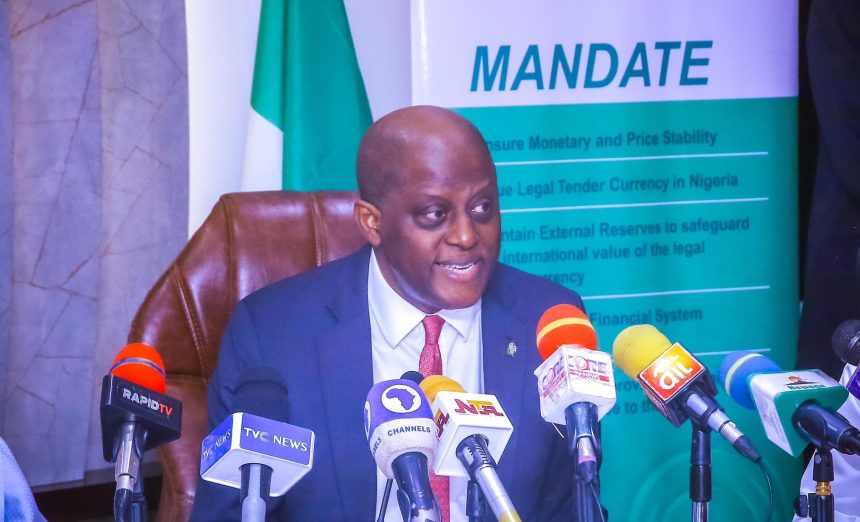The Central Bank of Nigeria (CBN) has revealed that Nigerians borrowed a whopping N470 billion as personal loans from banks in the last quarter of 2024.
The revelation, contained in the apex bank’s Fourth Quarter 2024 Economic Report, highlights a growing dependence on personal credit facilities as individuals navigate rising living costs and economic uncertainties.
According to the report, consumer credit outstanding climbed by 11.06%, reaching N4.72 trillion by December 2024, compared to N4.25 trillion at the end of September.
A deeper analysis of the data shows that personal loans soared by 21.27%, hitting N3.82 trillion—an increase from N3.15 trillion in the previous quarter. This remarkable rise accounted for the bulk of consumer credit expansion, reflecting shifting borrowing trends. In contrast, retail loans plummeted by 18.18%, declining from N1.10 trillion to N0.90 trillion, indicating reduced appetite for retail credit among consumers.

The CBN report highlighted the dominance of personal loans in the consumer credit landscape, constituting 80.98% of total credit, while retail loans accounted for the remainder. The surge in personal loans is linked to factors such as mounting inflationary pressures, escalating living costs, and increased accessibility of bank credit to individuals.
“Consumer credit outstanding rose by 11.06% to N4.72 trillion at the end of December 2024 from N4.25 trillion at the end of September 2024. Personal loans increased by 21.27% to N3.82 trillion compared with the level at the end of September 2024. Retail loans, however, declined by 18.18% to N0.90 trillion from N1.10 trillion at end-September 2024. A breakdown indicated that personal loans, with a share of 80.98%, remained dominant, while retail loans accounted for the balance,” the report stated.
This surge in borrowing has been fueled by commercial banks’ willingness to extend credit, despite the CBN’s tightening monetary policy. Throughout 2024, the CBN’s Monetary Policy Committee (MPC) aggressively raised the Monetary Policy Rate (MPR) by 875 basis points, pushing it to 27.50% in a bid to combat inflation. The inflation rate, which stood at 34.80% in December 2024—up from 34.60% in November—was driven by heightened demand for food and non-alcoholic beverages during the festive season.
While the tightening of monetary policy has made borrowing more expensive, the sustained demand for personal loans highlights the financial pressures faced by Nigerians and their growing reliance on credit to meet essential needs. As banks continue adjusting interest rates in response to the CBN’s policy stance, the coming months may see further shifts in consumer borrowing patterns.



